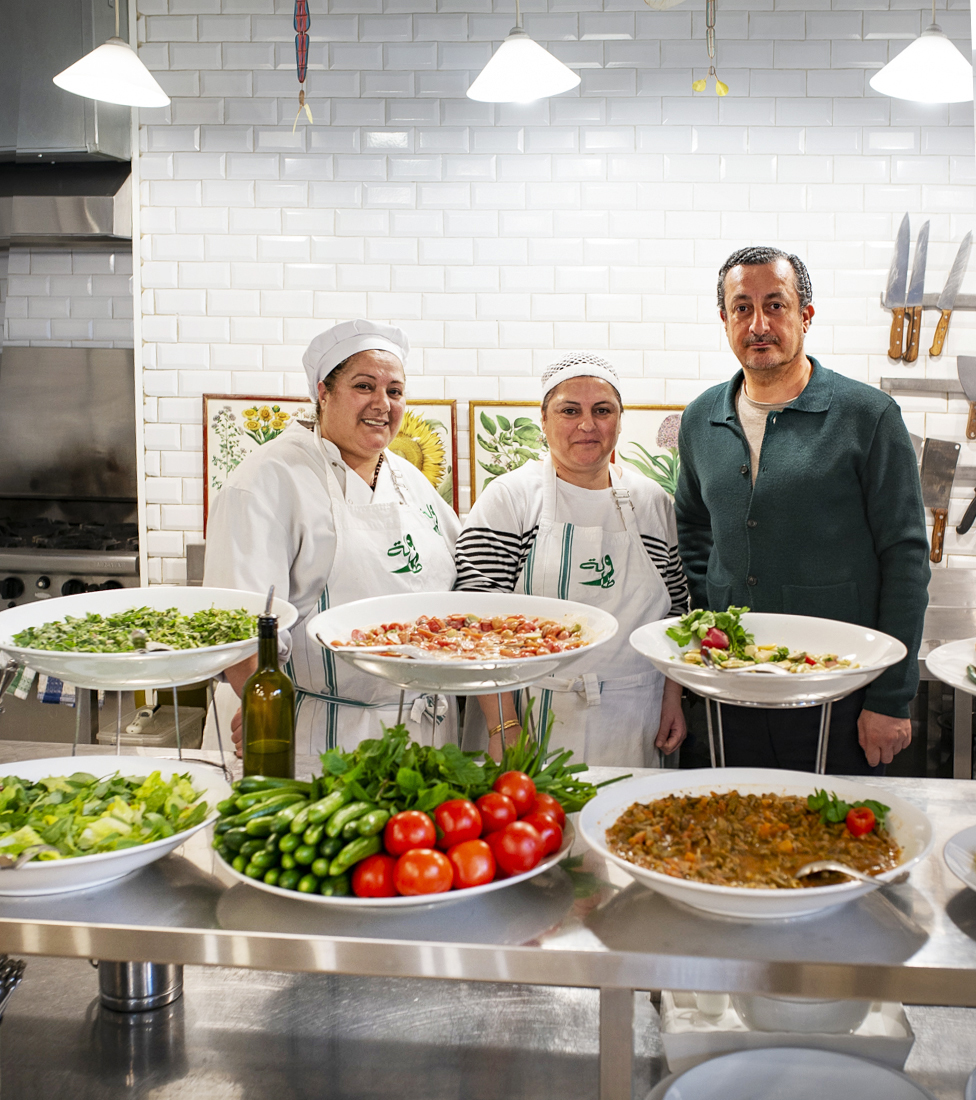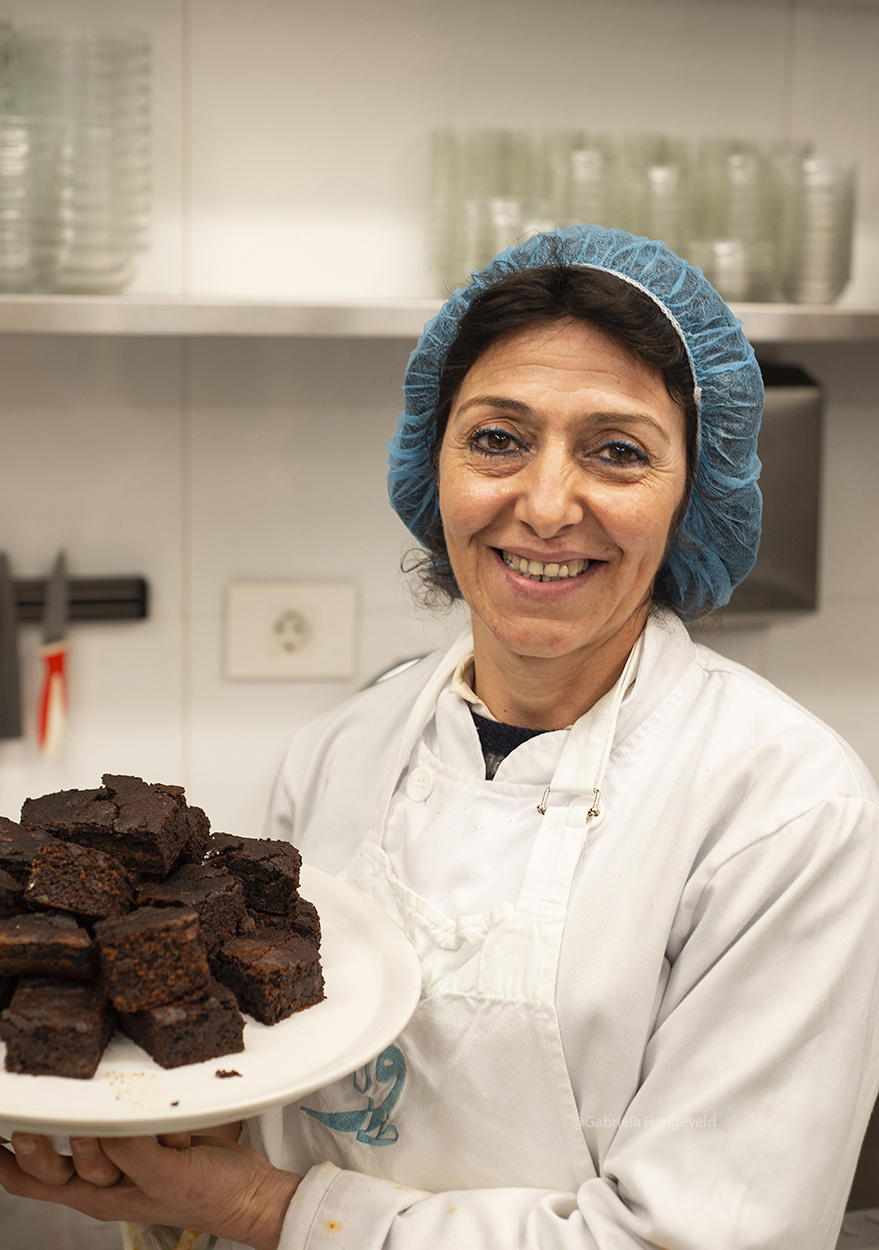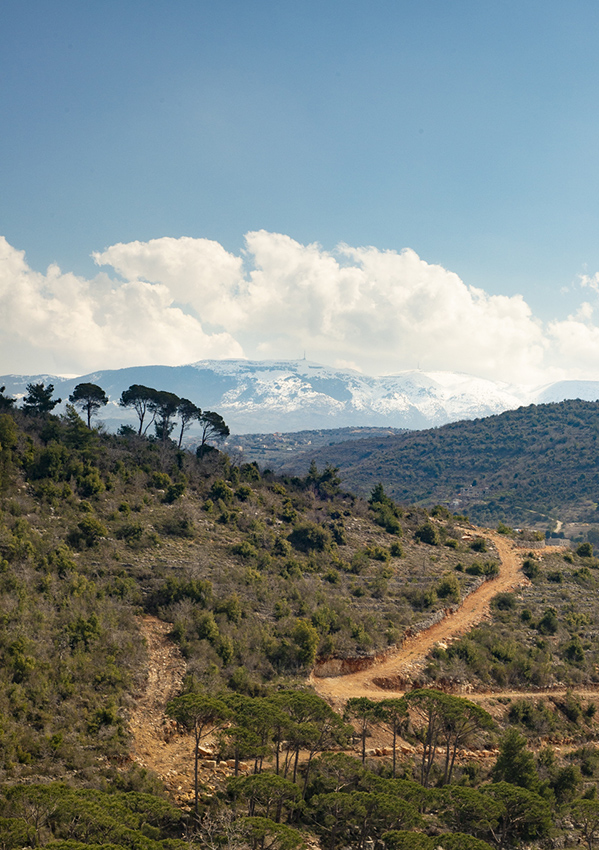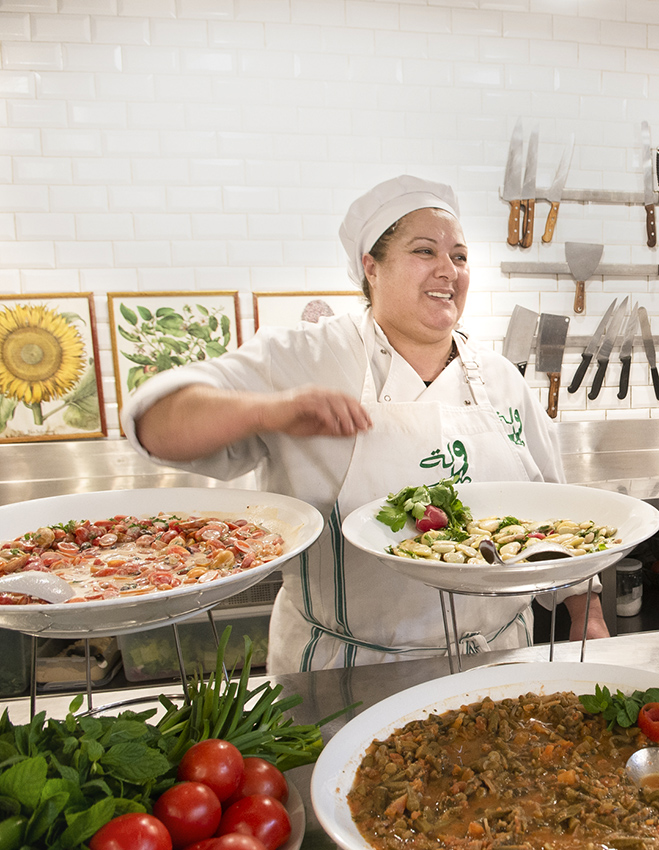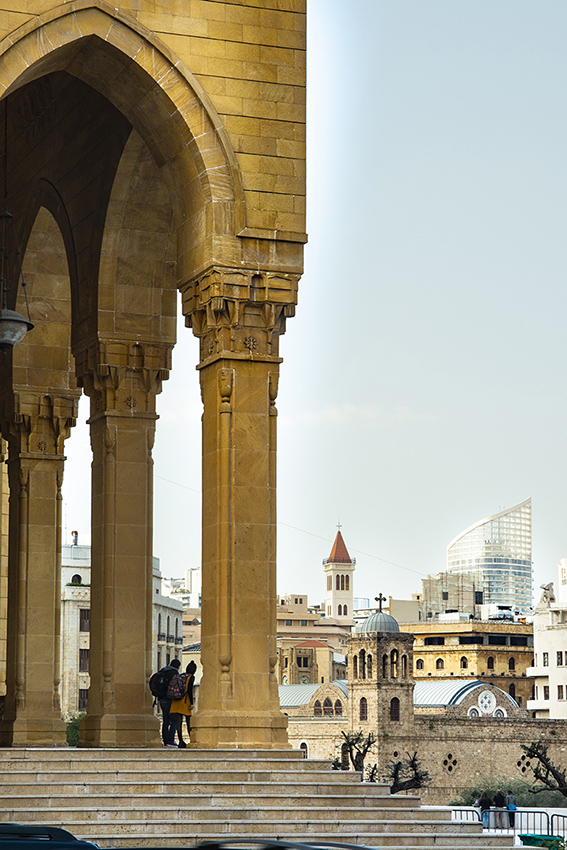Libanon
When visiting Libanon there is this organization called Souk el Tayeb that provides places to stay and eat and a market to shop.
It’s a perfect example on how you can make your trip to the exciting Libanon a responsible one
I met in 2018 with the founder Kamal Mouzawak who started this project in 2004 with a biological farmers market in the heart of Beirut.
The idea was to bring rural produce to the urban environment, as a way of uniting communities and supporting small scale agriculture.
Amongst the producers are many women, who sell their own grown vegetables and traditional dishes.
The market became a big succes and since people love the traditional self prepared food the team of Souk el Tayeb opened their first traditional restaurant- Tawlet (Arabic for table) in 2009 in the middle of hipster neighborhood Mar Mikhael in Beirut. Rhéa a woman of the Souk el Tayeb team invited me for lunch in this Tawlet. The place is very elegantly decorated and at the buffet filled with Hummus, Tabouleh , Shawarma , Tahin and much more it is hard to stop eating.
“Every day a different woman from a different village from Libanon comes to cook” Rhéa told me.
These Tawlets attract many visitors like me who want to taste the local specialties. In the evening after having some drinks in lively bars with names like Capitale and The Bohemian I jumped back into my bed in this trendy decorated Bed & Breakfast. Souk el Tayeb expanded their services with a Bed & Breakfast- the so called Beits, a typical Libanese family house. Thank’s to the Tawlet and B&B women who would normally have staid at home get empowered, earn their own income and share experiences. Not only women but also several refugees found work opportunities.
Kamal is convinced that agriculture and food can start a dialogue because they express an identity. An identity that brings people together. His slogan is: ‘Make food not war.’
Despite the turbulent history of several civil wars, extreme differences in religions and growing population of refugees I felt safe and very welcome in Libanon.
I was very impressing to me to witness (or to see) women and men coming from different backgrounds, countries and religions (Palestina, Syria, Somalia, and religions like Moslim, Catholic and Druze,) working together growing food, preparing food it in their traditional way and putting it on the table in beautiful restaurants decorated by themselves as a community.
soukeltayeb.com

